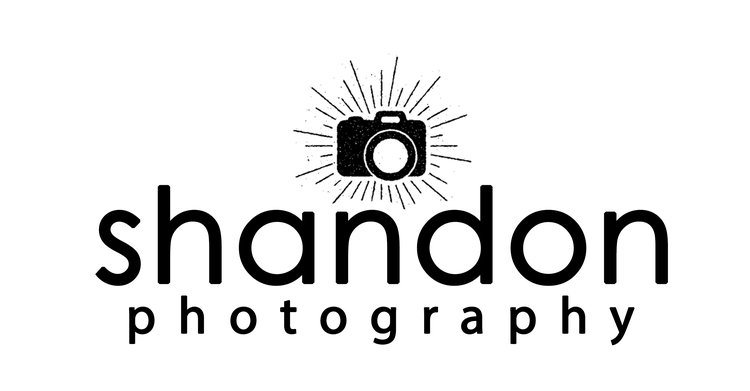Let’s face it, you need to look pretty amazing in your headshots. It’s your calling card, your first impression. You need to look like a working actor before you ever walk into the audition room. That working actor image usually brings up images of infectious charisma, impeccable style and effortless beauty, but sometimes you look at your reflection and you’re not living up to the images you see at the Cineplex or streaming to your television. Is your charisma enough to have the casting director look past a few imperfections? How do you prepare for a photoshoot when your blemishes and hardware are making you more of a fringe character and less of a leading actor?
Three common hurdles we deal with when shooting young actors are glasses, braces and blemishes. We take call after call asking “What should I do when my child gets braces?” Or “Should I shoot with or without my glasses?” Or “I woke up with with a pimple. I need to reschedule.” Today we will talk about these three common issues, and when to embrace or battle these demons.
Pimples/Blemishes. If Murphy’s Law is correct, then if something can go wrong, it probably will. I’ve heard the same story time and again. Actors arrive for their headshot session with the same story: they never have complexion problems, but the morning of their shoot, they wake up to a horrible pimple. If this happens to you, take solace that you are not alone. To paraphrase a common meme: Acne Happens. The good news is that good lighting, makeup and a little retouching can easily fix minor breakouts. Waking up the day of your shoot with a pimple might be a little frustrating but it is no reason to freak out or reschedule your session. Small blemishes can be minimized with really good even lighting and/or makeup. If you’ve hired a makeup artist, chances are a tiny spot of the perfect color neutralizer will even tone and make your spot barely noticeable. But be prepared. Makeup artists can change the color of a blemish, but they can’t change the shape. If a blemish protrudes from your skin, you’ll see it depending on how your photographer lights you. For evenly lit commercial or beauty shots, a lot of your uneven skin will blend away, but with more dramatic or edgy lighting, pimples might be exaggerated because of the way the light is casting shadows on your face. In this instance you always have the magic of retouching as a crutch. A good retoucher can quickly blend away blemishes on your final headshot choices and give you the perfect skin that still looks natural and untouched.
It’s important to know the difference between a minor breakout and chronic acne or other skin problems. If you suffer from a chronic condition, it’s in your best interest to see a dermatologist or medical professional before your photoshoot. Even though it is possible to retouch our photo and make you look like a matinee idol, you still have to walk into the audition room and look like your headshot. If you lean too heavily on photo manipulation, you’re short-changing your acting career. The casting director will be frustrated that you’ve essentially lied to help you get into the room and you’ve wasted their time and yours too. Spend the time and the energy to get yourself on a regime of skincare that will keep you looking your best and make it easier on your makeup artists, photographers and cinematographers.
Braces. Every once in a while I hear that parents are postponing orthodonture in favor of their child’s acting career. Truth be told, there is no good time to have braces as a child actor, but similarly as your child ages in the industry, a funky smile becomes less and less adorable. When making the decision of when to get braces for your little actor, take the business out of the equation. You want the best for your child and while it may seem like a good idea to postpone your child’s orthodonture for fear of losing opportunities, the fact of the matter is that the real opportunity loss is not fixing it at all. A year or two of braces might limit your child’s marketability in the short term, but having a great smile, an even bite, and a reduced risk of dental problems later in life are all priceless.
I shoot for one manager who once bluntly said, “Pretty girls with braces just don’t work.” While there are exceptions, having braces does limit your marketability. But there are clearly some alternatives and workarounds. Consult with your agent and manager—they definitely will have an opinion. If you want to minimize the obtrusiveness of your mouth metal, you can go with clear braces or Invisalign if you qualify for it. I’ve shot some clients whose managers urged them to get good old fashioned metal braces, pushing the character angle. Sometimes casting doesn’t care if your kid has braces. Regardless of how it affects your child’s bookings, be a good parent and not a bad stage parent. Fix the problem now and reap bigger rewards later.
On a side note, it’s probably best to shoot headshots right before you get braces. Your child will have a better shoot and you won’t telegraph a problem to the casting director before you meet them. They might be disappointed when they see your child at the audition with braces, but they might not care at all. And in some extreme cases, you might remove braces while filming and have them put back on after you wrap.
Glasses. Sometimes four eyes are better than two. And sometimes they aren’t. If you have glasses, bring them to your shoot—it gives you another way to vary your look. Make sure when you’re having your prescription filled, to opt for non-reflective coating or material and steer clear of transitional lenses. A good photographer can shoot your glasses so the final photo doesn’t show spectral reflections in the glass, but sometimes the light that is required to minimize that reflection isn’t always the prettiest light on your face. Help your photographer (and yourself) out and get a pair of non-reflective lenses. They will be helpful at your photoshoot and invaluable when you're being videotaped with them on. If your eyes are the windows to your soul, then you shouldn’t shutter them with bright white reflections. You can also have a pair of glasses that don’t have lenses at all. While it might seem strange, the viewer of your headshot won’t notice, especially if the other elements (like your spirit, and the composition) are wowing them.
If you need glasses and can get contacts, do it. This gives you the option of both looks and it will be invaluable when reading scripts and making your way around set. If you can’t get contacts because of your age or other issues like a lazy eye, then embrace the situation and find some glasses that help define your style—and again, make sure they are non-reflective and not transitional.
Some people wonder if they should use glasses in their photoshoot if they don’t wear glasses in real life. Again, this is a perfect question for your agents and managers—each will have an opinion, but they aren’t always the same. Some folks in the industry think you should only wear glasses in your headshots if you wear glasses in real life. Others think that glasses are an easy way to give your shoot some variety and will want the option for you.
I often tell the story of a kid I shot a few years ago who doesn’t wear glasses. His agent regularly requests a few photos with glasses for the sake of creating character and variety. About six months after his shoot, we heard from his mother. Apparently, his agent had submitted a headshot of the child with glasses to a major network show. The child had a callback and the casting director asked if he would bring his glasses to the callback. Because the child didn’t wear glasses on a regular basis, they took a trip to their local drugstore and bought a ten dollar pair of readers and popped out the lenses for the callback. Long story short, they kept calling the kid back, eventually to producers an each time he showed up with his pair of dime-store spectacles. He was eventually cast as the nerdy child in this family sitcom (now in it’s 5th season). Ironically at the table read for the pilot episode, they asked if he felt comfortable shooting without his glasses, because they had made a change in the creative aspect. Long story short, the glasses helped book him the job, even though he didn’t wear glasses in real life, and eventually he didn’t even need them for the show.
The most important thing to remember when working with temporary visual distractions is that they are temporary. Remember that your career as an actor is a really long poker tournament, so embrace the hand you're dealt in the moment. Fix major problems for the long haul, and make the most of a less-than-ideal moment. Maybe what you think is a flaw will help you book the current job, and if not, you have a long career and thousands of opportunities ahead of you.

